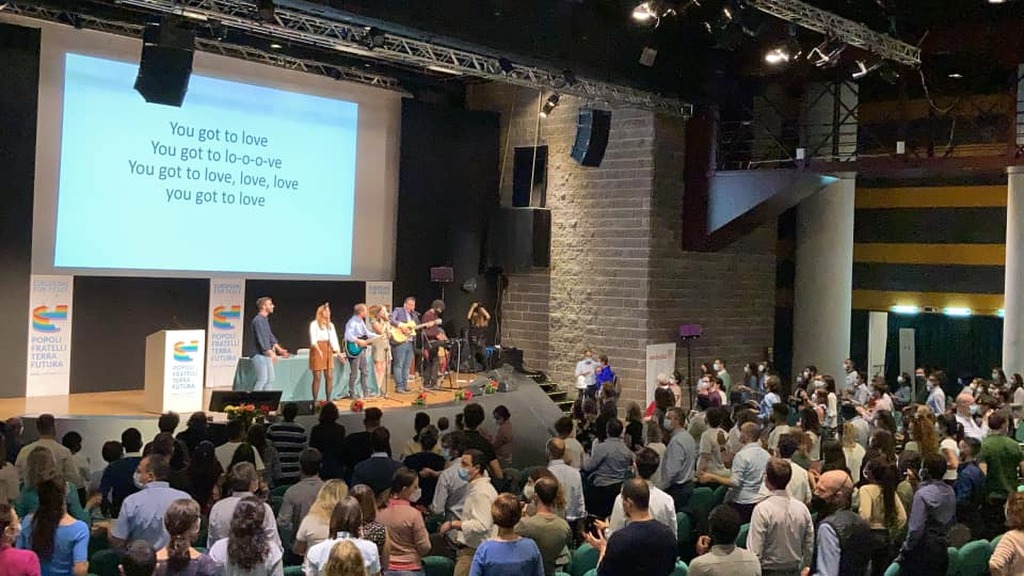On Saturday 9 October, the Europeans for Peace meeting was held in Rome. 400 young people from 15 countries came together, finally in attendance, to discuss and reflect together on how to build a post-pandemic world. The new beginning of which the young people of Sant'Egidio want to be the promoters is based on two elements: Peace and Community.
The images of Kabul airport remind us that peace is necessary. Mario Giro explained it well, addressing the assembly of young Europeans. There are still too many endless conflicts that continue to cause victims and wear down entire countries. But talking about peace, said Giro, is also fundamental in Europe where, in the words of the Hungarian writer Sandor Marai, 'there is not yet war but there is no longer peace". Often, in many countries of the old continent, we see the return of nationalist rhetoric that fuels social tensions and incites violence against those who are different or foreign. The challenge for Generation Y and the Europeans for Peace who are part of it is therefore to revive the culture of peace in Europe, especially now that the witnesses of World War II are disappearing. As Giro recalled, "peace is a constant and continuous work that starts in our cities".
In addition to the important work for peace, the role of young people in reweaving the network of humanity that has been loosened by the pandemic also emerged. This was underlined by Marco Impagliazzo in his afternoon speech, stating that "The new post-pandemic world can only be reborn as a community of us, otherwise it will be worse than before". "In the desert of the pandemic," continued Impagliazzo, "you young people have been trees that have given shelter and refreshment to so many poor people". Now is the time to rebuild the networks of solidarity, to become a forest to achieve that "social climate change" that can address the fear generated by pandemic isolation. Extending the friendship with the poor that the young people of Sant'Egidio live in the cities where they are present to everyone is the key to achieving this radical change.
The stories of the many young people who spoke during the day give a glimpse of a different Europe. The friendship with the homeless in London and Hungary, the missions in Bihac and Lesbos and the reception of refugees through the humanitarian corridors all speak of a welcoming and inclusive Europe. A Europe in which solidarity becomes a concrete alternative to the individualism of the globalised world.
Today's videos















-min.jpg)
-min.jpg)
-min.jpg)
-min.jpg)
-min.jpg)